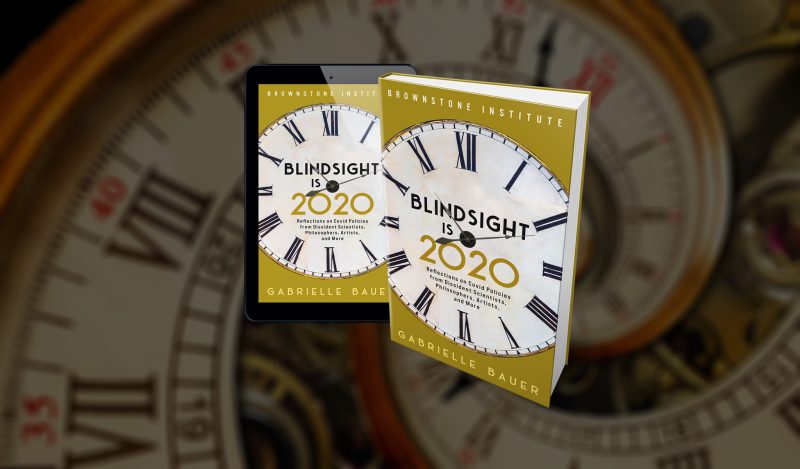Since the beginning of the pandemic I’ve divided people’s objections to the Covid policies into two categories: arguments that depend on specific features of the SARS-CoV-2 virus and arguments that would carry the same weight with any virus and any pandemic. I call these categories, respectively, data-dependent and data-agnostic arguments.
While data-dependent arguments have their place, they rest on shaky ground. For example, if in the spring of 2020 we argued that an infection fatality rate of 0.3 percent didn’t justify locking down the world; all it would take is a study demonstrating a much higher lethality to turn our argument to slush. Like the employee whose job security hangs on the success of their most recent project, data-driven arguments are only as strong (or as weak) as the latest peer-reviewed study or meta-analysis.
Data-agnostic arguments, on the other hand, rest on principles that, if not unalienable, have stood the test of centuries—principles that emerged in the quest for civilized and meaningful living, such as freedom of assembly and consent of the governed. We can quibble about how to interpret and apply these principles, but we can’t summarily dismiss them—and they won’t crumble in the face of a new study on antibody titers or community masking.
Behind the mask wars
Since joining Twitter in November 2022, about ten years late to the party, I’ve scrolled through innumerable threads debating the merits of masking. Each side blows clouds of data at the other side: the Danish study, the Bangladesh study, the Boston school study, studies of airflow dynamics, back and forth, forth and back, a rat-a-tat volley of claims and counterclaims that never reaches a satisfactory conclusion.
If these debates don’t go anywhere, it’s because the two sides aren’t really arguing about data. They’re arguing about the type of world they want to live in. The mask adherents maintain that protection from a physiological risk trumps all other considerations. If masks can help in that effort, even marginally, we should all mask up and have laws to make sure we do. End of discussion. Physiological safety über alles. That’s the data-agnostic argument underlying the forever-maskers’ plaintive cries on Twitter.
By the same token, those of us who oppose indefinite masking did not stumble on our position because of this or that study. Our deepest objections spring from such data-agnostic arguments as: masks dehumanize us, interfere with communication and connection, and place a disproportionate emphasis on keeping people safe from each other. Even if high-quality masks give us an increment of extra protection from a virus, a perma-masked world does not strike us as mentally, socially, or spiritually healthy.
Data as deflection
Just as with masks, the debate about Covid vaccines has largely focused on data about efficacy and side effects. Does the balance tip toward boosting a 65-year-old woman? A 25-year-old man? A schoolchild? How dangerous is myocarditis? Can VAERS reports be trusted? Can we justify society-wide mandates if studies demonstrate that the vaccines have a net benefit?
Here again, these questions deflect our attention from the deeper, data-agnostic argument about bodily autonomy. Do we, as a liberal democratic society, agree on bodily autonomy as a foundational principle? Do we cherish this principle enough to uphold it against public-health appeals to the common good (whatever that means)? Why or why not?
Ditto for lockdowns. Over the past couple of years, several analyses have reported that lockdowns didn’t make a significant dent in Covid death rates. The widely circulated Johns Hopkins study, for example, found that lockdowns only reduced Covid mortality in the US and Europe by 0.2 percent—hardly enough to justify their social and economic fallout.
For those of us who opposed lockdowns, it was tempting to reach for such figures when stating our case to the other side: Hey guys, see this? The science has spoken. We were right, you were wrong. But it’s a Pyrrhic victory, because the next virus to come along may have biological characteristics that make lockdowns far more likely to “work.” And then what? Our data-dependent argument puddles at our feet.
Between the lines
Remember that famous subtitled scene in Annie Hall? Set on a balcony, the scene has Alvy and Annie discussing the mechanics of photography, while the subtitles reveal what they’re really talking about: their budding relationship. Annie wonders if she sounds sophisticated enough to impress Alvy, while Alvy imagines what Annie looks like without her clothes on.
So it has been with the Covid wars. Transmission patterns, hospitalization rates, death rates, area under the curve… Public health advisors and their media lackeys kept drawing from the inexhaustible well of data to justify their actions. This tactic left their opponents with little choice but to dig up and throw up contradictory data.
These data duels presume that a pandemic is nothing more than a scientific puzzle with a scientific solution. In truth, a pandemic is not just a science problem to solve, but a multifaceted human crisis to steer through, and discarding the data-agnostic principles that have ennobled our lives for centuries carries a profound cost.
Insights beyond science
The deepest insights about pandemic policy, about balancing competing priorities, often come from people outside science, perhaps because they’re less inclined to let the data distract them from their moral intuitions. That’s why I showcased not just scientists, but philosophers, sociologists, artists and other original thinkers—even a rapper and a priest—in my book Blindsight Is 2020, published by Brownstone Institute earlier this year.
A virologist can advise us on how to avoid infection, but cannot decide for us, either individually or as a society, whether avoiding infection should displace life’s other risks and rewards. If anything, infectious disease experts are at a disadvantage in making such judgment calls. Their focus on viral containment blinds them to the material and spiritual aches pressing on a locked-down and masked-up world. Winston Churchill nailed it when he stated: “Expert knowledge is limited knowledge, and the unlimited ignorance of the plain man who knows where it hurts is a safer guide than any rigorous direction of a specialized character.”
To prevent a repeat of the Covid debacle, we need to draw on principles that transcend the contours of a particular virus, like the above-mentioned freedom of assembly, bodily autonomy, and the right to provide for one’s family. As an online acquaintance—a man of the cloth—recently put it, “Would you want to live with the knowledge that you are alive today because thousands of families have lost their means of survival?” Well, no, I would not.
How can we protect grandma while also safeguarding dignified and purposeful living in the free world? That’s the data-agnostic discussion our politicians and public health advisors should be having the next time around. Perhaps it’s too much to hope for.
Join the conversation:


Published under a Creative Commons Attribution 4.0 International License
For reprints, please set the canonical link back to the original Brownstone Institute Article and Author.









